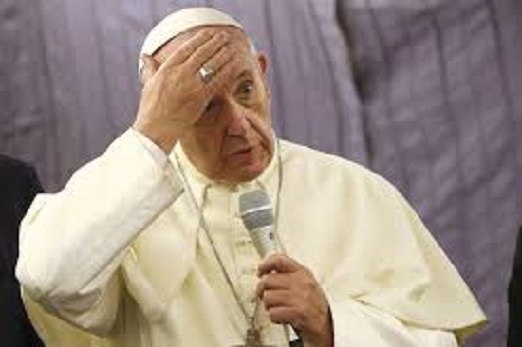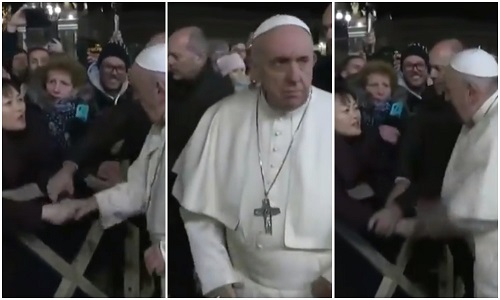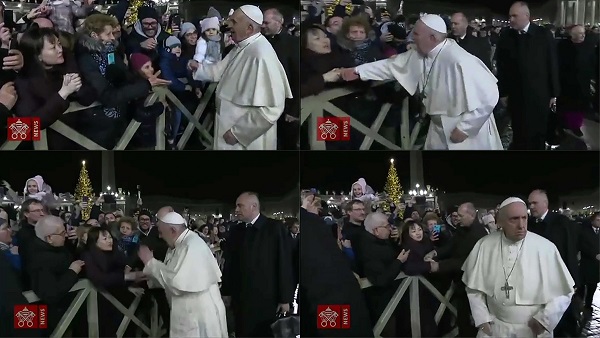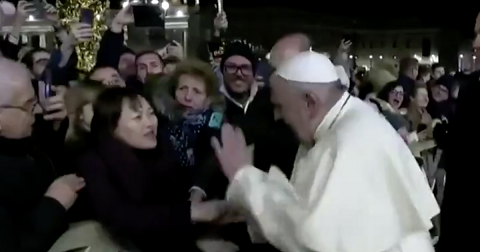POPE FRANCIS, SLAP, BAD EXAMPLE, ‘I APOLOGISE’
“Love makes us patient,” Pope Francis told faithful gathered to celebrate the feast of the Solemnity of Mary and the 53rd World Day of Peace.

“We often lose our patience. Me too, and I apologize for the bad example I set yesterday,” he added.
In apologizing Wednesday, Pope Francis spoke about “stepping down from the soapboxes of our pride."
“So that the year that begins will be a journey of hope and peace, not in words, but in daily actions of dialogue, reconciliation and the care for creation,” he said.
The pope’s apology could teach other public figures about being contrite
Sorry doesn’t have to be the hardest word, as Pope Francis proved after slapping the hand of a woman who grabbed him
On New Year’s Day, the Pope veered off script during his address to a packed St Peter’s Square to apologise for his behaviour the previous night. Unsurprisingly, this did not involve the traditional end-of-December misdemeanour of drinking excessively and vomiting on a host’s sofa. Instead, while greeting pilgrims at the Vatican on Tuesday evening, he slapped a woman’s hand away after she grabbed him and yanked him towards her. He may have labelled the slap a “bad example” but, appropriately for a spiritual leader, the apology itself provided an immaculate blueprint for saying sorry.

Why was it so laudable? First, it came swiftly. Less than 24 hours after the incident. There was no whiff of hoping the fuss (inevitably, the slap had sparked criticism on social media) would blow over, nor of waiting for advisers to conjure a glib, legally watertight statement. Second, it was unequivocal. “So many times we lose patience – even me, and I apologise for yesterday’s bad example,” were his words in full. They contained no attempt to excuse or diminish the wrongdoing. He merely acknowledged his human fallibility, which may have chimed with those who have recently watched Netflix’s The Two Popes: the show offers an unsentimental portrait of how, in becoming pontiff, one is expected to have miraculously morphed from flawed human to spotless martyr.
Of course, it may sound odd to look to the leader of the Catholic church for tips in contrition – Francis has been criticised for not tackling the sexual abuse crisis more decisively. He’s perhaps more than adept at addressing his own personal faults than those of the institution he represents.

A proper apology from an adult human shouldn’t be remarkable. It’s something you’re expected to have mastered around the time you graduate from reception. In an alarming indictment of our education system, however, it seems hordes of people get through school without a basic grasp of how apologies work. While we’re discussing the best and worst trends of the last decade, I’ll venture that the 2010s were the exasperating era of the non-apology. The age in which the “I’m sorry if…” format rose to prominence, letting the wrongdoer off the hook by implying the victim had mistakenly detected offence in what was clearly an innocent act. You know, kitten slaughter, or something like that: “I’m sorry if you were offended that I murdered little Ginger. That was not my intention.”
Here’s hoping the pope has set the precedent for a new decade where public apologies are heartfelt, not laughably hollow.

